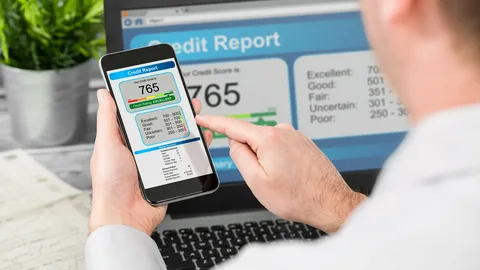Establishing credit for your business is an essential step toward financial independence and growth. A strong business credit score not only enhances your company’s ability to borrow money under favorable terms but also builds its credibility in the marketplace. However, navigating the process of building business credit can be complex for new business owners. This blog post will guide you through the steps to establish credit for your business effectively, emphasizing the importance of a business checking account as a foundational element in this process.
Table of Contents
Understanding Business Credit
Before diving into the steps to build business credit, it’s important to understand what business credit is and why it matters.
What is Business Credit?
Business credit is a track record of a business’s financial responsibility that lenders, suppliers, and other financial entities use to evaluate the risk of lending money or extending credit to the business. A strong business credit score can lead to better financing options, lower interest rates, and more favorable terms from suppliers.
Steps to Establish Credit for Your Business
Building business credit doesn’t happen overnight. It requires deliberate actions and financial discipline. Here are the key steps to establish credit for your business:
Open a Business Checking Account
- Foundation for Financial Transactions: A business checking account is essential for handling your business’s financial transactions. It separates your personal finances from your business dealings, which is critical for establishing business credit.
- Demonstrates Financial Responsibility: Regularly using and managing a business checking account shows financial institutions and credit bureaus that your business operates responsibly.
- Facilitates Credit Relationships: A business checking account is often a prerequisite for obtaining business credit cards, loans, and lines of credit, serving as the basis for building a credit history.
Obtain an Employer Identification Number (EIN)
- IRS Registration: An Employer Identification Number (EIN) is a federal tax identification number for your business. It’s necessary for tax purposes and is often required by banks when opening a business checking account.
- Credit Profile Foundation: Your EIN is used to open credit accounts and is linked to your business credit profile, making it a critical component in establishing your business credit.
Apply for a Business Credit Card
- Start Building Credit: A business credit card is one of the most effective tools for building business credit. Ensure that the card issuer reports to the business credit bureaus.
- Manage Credit Wisely: Use the card for business-related expenses and pay off the balance on time. Responsible business credit card use can significantly improve your business credit score.
Establish Trade Lines with Suppliers
- Vendor Credit: Set up trade lines with suppliers and vendors offering net terms (e.g., net 30 or 60 days). Ensure they report your payment history to the business credit bureaus.
- Build Payment History: Timely payments to suppliers and vendors demonstrate your business’s creditworthiness and contribute positively to your business credit score.
Monitor Your Business Credit Report
- Regular Checks: Regularly monitor your business credit report from bureaus like Dun & Bradstreet, Experian Business, and Equifax Business to ensure accuracy and to track your progress.
- Dispute Errors: If you find inaccuracies in your business credit report, dispute them promptly to maintain a healthy credit score.
Conclusion
Establishing credit for your business is critical to securing its financial future. Starting with the foundation of a business checking account, obtaining an EIN, applying for a business credit card, establishing trade lines, and monitoring your business credit report are all essential steps in building a robust business credit profile. By following these steps and managing your finances responsibly, you’ll pave the way for better financing options, improved terms with suppliers, and overall business growth. Patience and diligence are key to establishing and maintaining strong business credit.











